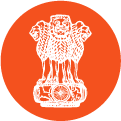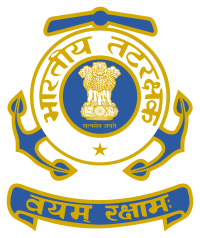Clearing the AFCAT exam is not at all a cakewalk. It requires continuous efforts and dedication to clear it, and the first thing that you must do is to acquaint yourself with AFCAT Syllabus to perform well in the exam. The IAF AFCAT syllabus consists of 4 subjects - General Knowledge, Mathematics, Reasoning & Military Aptitude, and English. The standard of questions of Numerical ability will be equivalent to matriculation level. The level of other subjects will be of graduation level. The detailed syllabus of AFCAT 2024 for each subject is as follows:
Subject | AFCAT Syllabus Topics |
English | Error Detection,Reading Comprehension, Sentence Completion, Synonym/Antonym, Vocabulary, Idioms & Phrases |
General Awareness | History, Geography, Political Science, General Science, Environment, Defence, Art & Culture, Current Affairs, Sports |
Numerical Ability | Decimal, Fractions, Time & Work, Average, Profit & Loss, Percentage, Ratio & Proportion, Simple Interest, Speed, Time & Distance, etc |
Reasoning & Military Aptitude | Verbal Skills, Spatial Ability |
AFCAT EKT Syllabus
Those who wish to appear for Ground Duty Technical Branch need to appear for EKT (Engineering Knowledge Test). The elucidated details of the important topics and subjects of the Engineering Knowledge Test [EKT] have been presented here. Ensure capturing all the topics that will aid in moulding the strategy for the AFCAT 2023 exam. The syllabus of the EKT is elaborated herewith.
Some topics are common for every branch, which include Engineering Mathematics, Engineering Drawing & Physics. The Detailed AFCAT syllabus is shown below:
Engineering Mathematics: Matrix Algebra, Eigenvalues and Eigenvectors, Partial derivatives, Maxima and minima, Multiple integrals, Stokes, Theorems of integral calculus, Gauss and Green’s theorems. Cauchy’s and Euler’s equations, First order differential equation (linear and nonlinear), Complex variables, Taylor’s and Laurent’s series, Sampling theorems, Random variables, Mean, Median, Mode and Standard deviation, Discrete and Continuous Distributions, Fourier transform, Laplace transforms, Z-transform.
Engineering Physics: Description of Motion in One, Two and Three Dimensions, Units for measurement, Work, Energy and Power, Rotational Motion, Gravitation, Electrostatics, Electric Current, Heat and Thermodynamics, Magnetic Effect of Currents, Electromagnetic Induction and Alternating Currents and Electromagnetic Waves, Magnetism, Ray Optics, and Optical Instruments, Laws of Motion
Engineering Drawing: Introduction to Computer-Aided Drafting, Projection of straight line, planes and solids, Isometric Projection, Sectional Views of solids, Full section, Intersection of surfaces
The AFCAT Syllabus for each branch is given below:
Branch | Subject |
Computer Science Engineering | Analog and Digital Electronics, Electronic Devices, Computer Networks, Switching Theory, Information Technology, Electrical Engineering, Control Engineering, Telecommunication Systems, Microwave Engineering, Antenna and Wave Propagation, Radar Theory, Instrumentation, etc |
Electronic Engineering | Analog and Digital Electronics, Electrical Engineering, Electronic Devices, Control Engineering, Telecommunication Systems, Microwave Engineering, Antenna and Wave Propagation, Instrumentation, Computer Networks, Network Theory Design, Switching Theory, Information Technology |
Mechanical Engineering | Mechanics, Thermodynamics, Aircraft Structures, Theory of Machines, Fluid mechanics/Hydraulic Machines, Manufacturing Science, Materials Science, Automotive Engineering, Power Plant Engineering, Industrial Engineering, Flight Mechanics, Aerodynamics |
Along with the knowledge of the syllabus, candidates are required to follow the detailed AFCAT Study Plan and some important AFCAT Maths Formulae for effective preparation.





